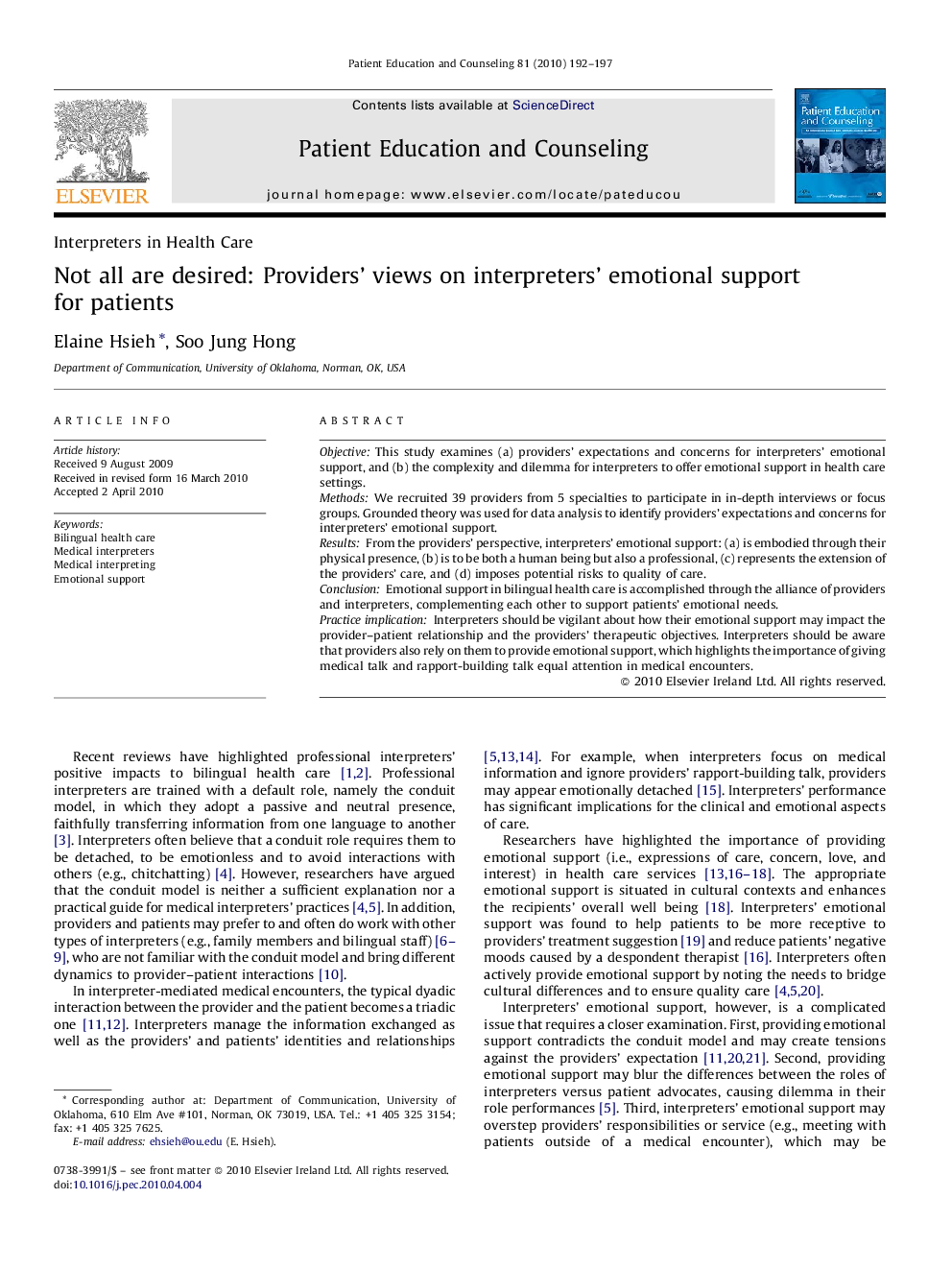| Article ID | Journal | Published Year | Pages | File Type |
|---|---|---|---|---|
| 3814687 | Patient Education and Counseling | 2010 | 6 Pages |
ObjectiveThis study examines (a) providers’ expectations and concerns for interpreters’ emotional support, and (b) the complexity and dilemma for interpreters to offer emotional support in health care settings.MethodsWe recruited 39 providers from 5 specialties to participate in in-depth interviews or focus groups. Grounded theory was used for data analysis to identify providers’ expectations and concerns for interpreters’ emotional support.ResultsFrom the providers’ perspective, interpreters’ emotional support: (a) is embodied through their physical presence, (b) is to be both a human being but also a professional, (c) represents the extension of the providers’ care, and (d) imposes potential risks to quality of care.ConclusionEmotional support in bilingual health care is accomplished through the alliance of providers and interpreters, complementing each other to support patients’ emotional needs.Practice implicationInterpreters should be vigilant about how their emotional support may impact the provider–patient relationship and the providers’ therapeutic objectives. Interpreters should be aware that providers also rely on them to provide emotional support, which highlights the importance of giving medical talk and rapport-building talk equal attention in medical encounters.
